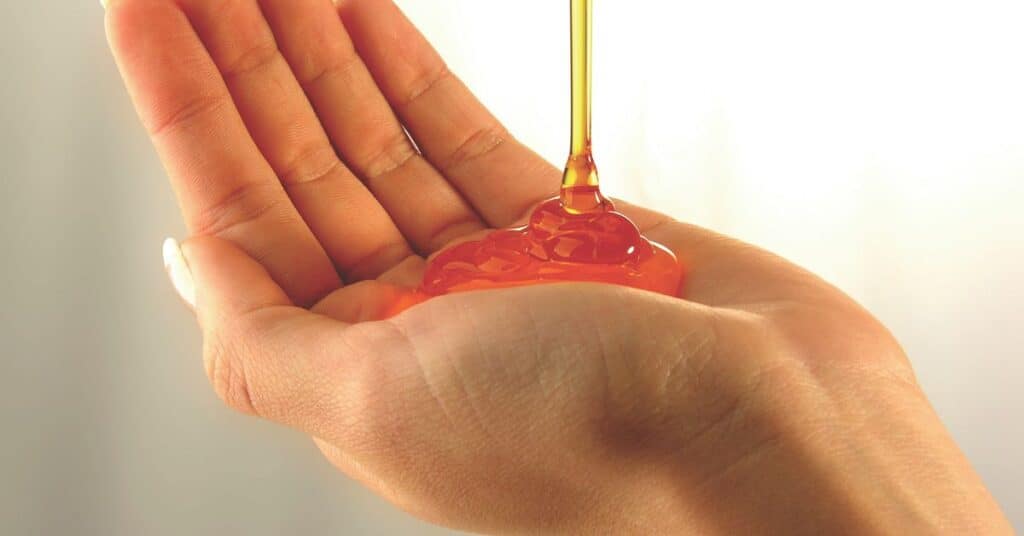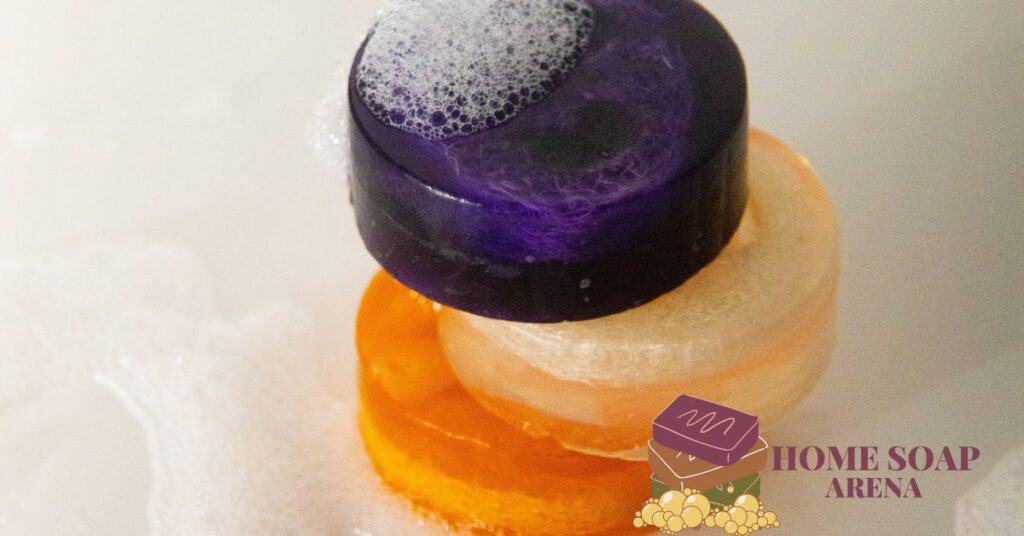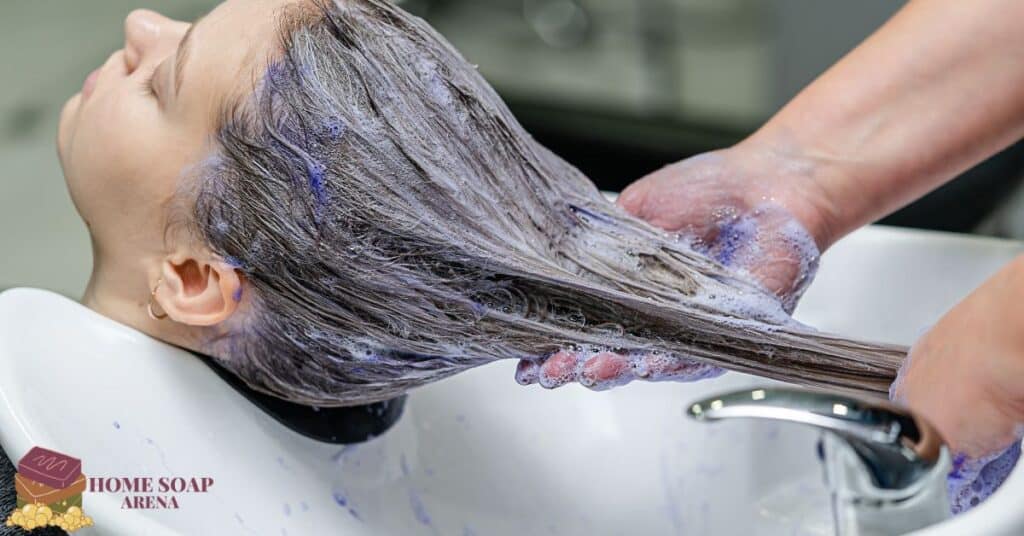Can liquid soap be used to wash hair? Generally, there is no problem using liquid soap to wash your hair; long-term use is a no-brainer!
As a soap maker experienced in both making solid and liquid soap and washing my hair with them, I can tell you for a fact that:
Washing your hair with a dishwasher, soap bars, or liquid soap makes your hair feel horrible.
Unlike dish detergents or liquid soap, which tend to have more or less straightforward formulas, shampoo formulations vary widely.
In this blog post, I will explain the pros and cons of using liquid soap for hair washing and compare it with shampoo.
Let’s start!
Liquid Soap Vs. Shampoo: The Difference
You might have heard about using liquid soap to wash your hair online. Just like the no-shampoo trend all over the internet
Maybe you’re out of regular hair shampoo, and your hair is a greasy mess. Or, maybe you heard that using liquid soap as shampoo can help remove buildup, dandruff, or hair dye.
What is Liquid Soap?
Liquid soap is a type of detergent made by combining fats or oils with an alkali called potassium hydroxide.
It contains surfactants, water, emollients, and often fragrances. Surfactants are the key components responsible for breaking down oils and dirt.
Castile liquid soap, 100% olive oil, and true liquid castile soap are some of the best options.
Castile liquid soap is a type of liquid soap that is made from vegetable oils, usually olive oil, and does not contain any animal fats.
There are numerous so-called liquid castile soaps available. Dr. Bronner’s is not true castile soap in the sense that most soap makers consider castile soap to be.
They’re made with coconut oil, palm oil, and other oils, but a true castile soap is 100% olive oil. It’s a very gentle soap, whether in bar form or liquid soap form.
Dishwashing liquids require more heavy-duty cleaning and contain more surfactant than shampoo.
Liquid soap has a high pH, usually between 9 and 10, which can disrupt the natural pH balance of the hair and scalp, around 5.5.
This causes the hair cuticles to open up, making the hair more prone to damage, frizz, and tangling.
Shampoo has a lower pH, usually between 4 and 6, which helps maintain the natural pH balance of the hair and scalp, keeping the hair cuticles closed and smooth.
While sulfates in shampoo and liquid soap break up buildup, dirt, and oil, they are generally safe at appropriate concentration levels.
There isn’t anything in dish soap to combat the stripping of natural hair oils, which is particularly concerning for those with highly damaged, color-treated, and curly or oily hair
What is Shampoo?
Shampoo is a type of synthetic detergent that is specially formulated for hair care.
A shampoo containing a combination of surfactants is necessary. The content of surfactants in a shampoo is typically between 10% and 20%.
Shampoo combines fatty alcohols derived from petroleum or natural oils with acids, such as sulfonic or sulfuric acid.
Shampoos are complex formulations consisting of primary surfactants of the anionic type, mainly alkyl sulfates, as detergents and foaming agents.
Surfactants like sodium cocoyl isethionate, an anionic cleaning agent that is sulfate-free (biodegradable), emulsify up to 10% oil phase.
secondary surfactants to boost the lather and thicken the shampoo; additives for stability, conditioning, and aesthetic features; and ingredients to address specific problems,
such as dandruff and dry and greasy hair.
After shampooing, the scalp becomes clean, oily, and dirt-free until fresh sebum is regenerated.
This action helps maintain personal hygiene and reduces the chance of scalp inflammation, itching, and odor.
A good shampoo should produce a voluminous lather and effectively cleanse the hair and scalp.
It should be easily rinsed out with water, leaving the hair soft, lustrous, and moisturized.
Shampoo can also have various additives, such as surfactants, conditioners, essential oils, proteins, vitamins, and botanical extracts.
Shampoo cleanses without removing essential oils, ensuring the hair remains hydrated and smooth.
Can You Use Liquid Dish Soap To Wash Hair?
Can I use liquid soap to wash my natural hair? No, shampoo is not the same as liquid soap.
They are both made with surfactants, which are substances that help remove dirt and oil from surfaces, but they have different formulas and purposes.
Shampoo is designed to clean the hair and scalp, while liquid soap cleans the body, bathroom, kitchen, and hands.
Notably, a 100% olive oil castile liquid soap is excellent for the body.
Shampoo also contains ingredients that moisturize, condition, and protect the hair, while liquid soap may contain ingredients that dry out or irritate the skin.
Shampoo and liquid soap also react differently with hard water containing minerals like calcium and magnesium.
Shampoo is less likely to form soap scum or leave residues on the hair, while liquid soap may leave a film or make the skin feel tight.
Therefore, it is not recommended to use shampoo as liquid soap, or vice versa, as they are not suitable for your skin or hair type.
The shampoo contains detergent or foam boosters like Cocamidopropyl betaine, both mild and natural cleansing agents.
Phenoxyethanol and caprylyl glycol; paraben and formaldehyde-free a Protection against microbial growth.
In addition, shampoo doesn’t contain lye.
Conclusion
Based on the above information, liquid soap is not the best option for washing hair, as it can cause more harm than good.
Liquid soap drys out the hair and scalp, disrupts the pH balance, and leave soap scum.
Shampoo is a better option, as it cleanses the hair and scalp without stripping them of their natural oils and moisture, maintains the pH balance, and rinses off cleanly.
Therefore, I recommend using shampoo for hair washing and saving liquid soap for other purposes.



